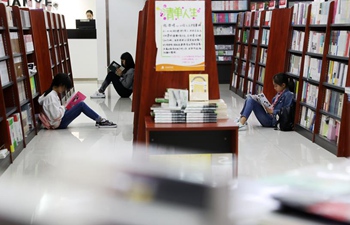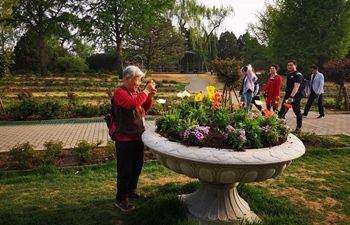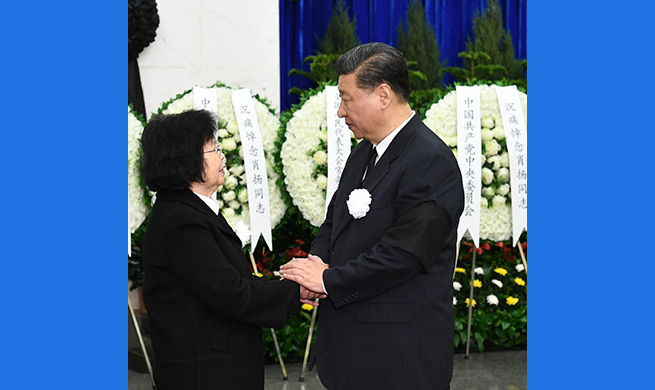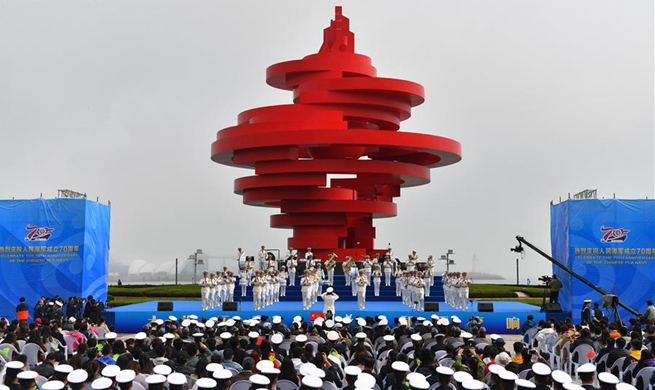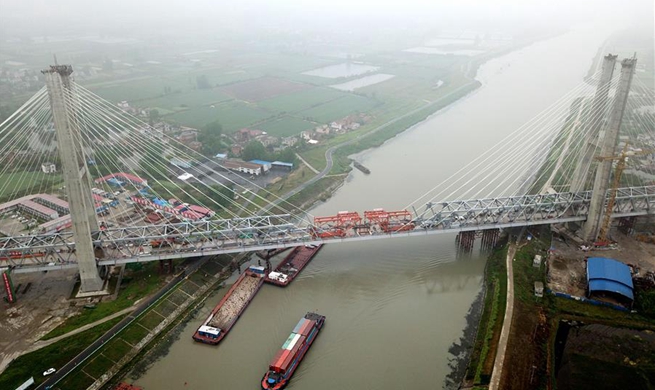MADRID, April 22 (Xinhua) -- The leaders of Spain's four biggest political parties on Monday took part in the first of two televised debates ahead of the general election which will be held on April 28.
The first debate between current Spain Socialist Party (PSOE) Prime Minister, Pedro Sanchez, Pablo Casado of the right wing People's Party (PP), Pablo Iglesias from the leftist formation, Unidos Podemos and Albert Rivera of the center-right Ciudadanos party, was held on Spanish state TV network RTVE.
A second debate will be broadcast by the private media company Atresmedia on its two networks Antena 3 and La Sexta on Tuesday night.
The latest opinion polls predict a win for the PSOE on Sunday, but with Sanchez's party falling well short of an overall majority in an increasingly divided Congress.
However, with around 25 percent of voters said to be undecided, the two debates are effectively the last chance the party leaders have to gain the support of these "floating voters".
So far a bad-tempered election campaign has been high on personal attacks and criticism, but low on policy proposals and the debates have not escaped controversy following the decision by the Spanish Electoral Board, which has the job of ensuring neutrality in the election campaign, to exclude the extreme right wing party "Vox".
The Electoral Board based that decision on the fact that Vox doesn't currently hold any seats in the 350-seat Congress, despite being predicted to win between 10-13 percent of the vote next Sunday.
Both Sanchez and Iglesias had criticized that decision with the Prime Minister even threatening to not appear in a debate without Vox leader Santiago Abascal.
Monday's 100-minute debate was divided into four parts -- economic policy, social questions, the territorial model of Spain and democratic regeneration and post-electoral pacts.
In questions of social policy, Rivera said a Ciudadanos government would give economic help to families. "If people don't have children we will not have a future," he commented, blaming Spain's low birthrate on "poor working conditions" during the last PP and PSOE governments.
Sanchez meanwhile highlighted the work his PSOE government had done "in 10 months and with just 85 deputies" in social questions, such as raising pensions and also increasing the minimum wage to 900 euros (1,013 U.S. dollars) a month.



